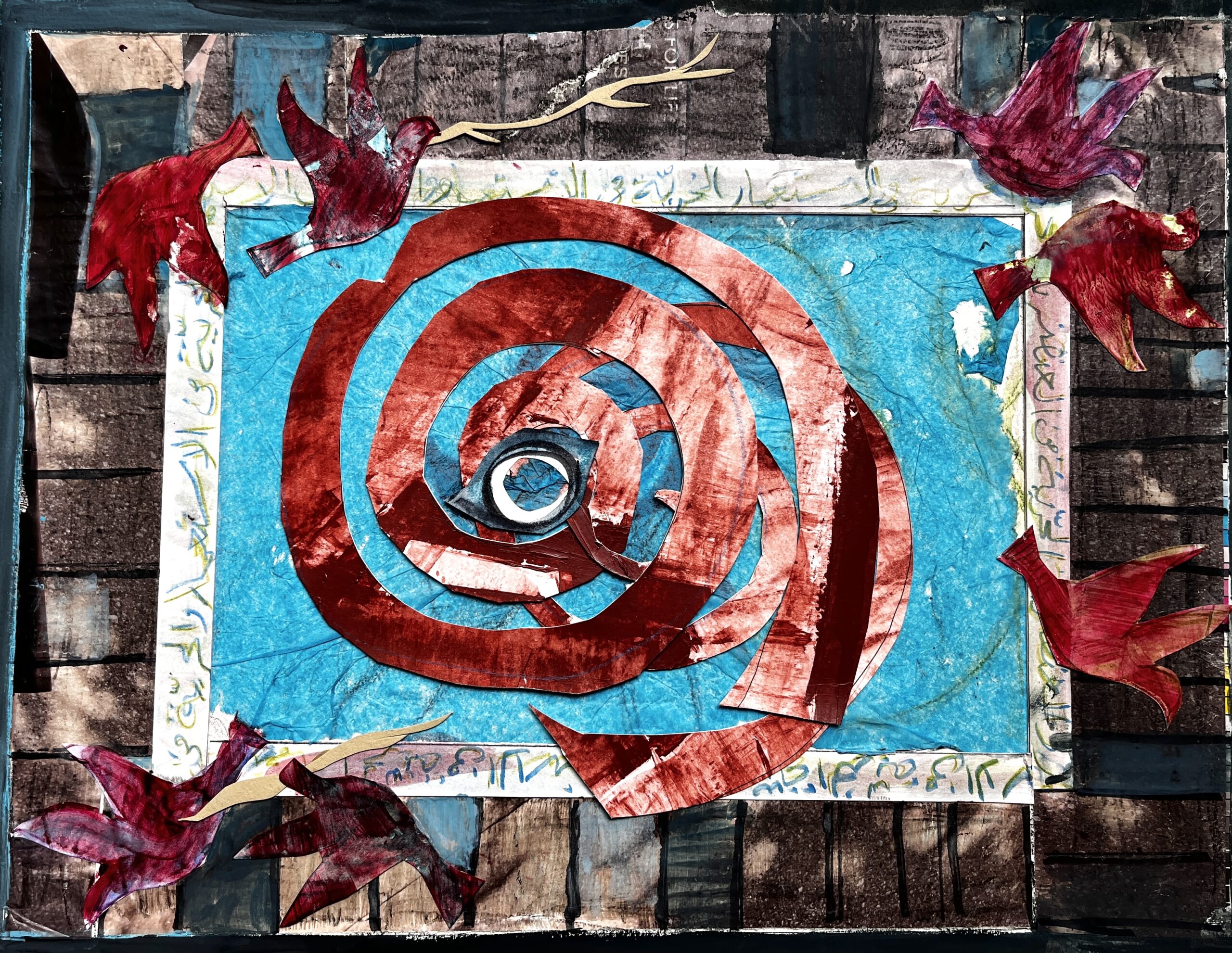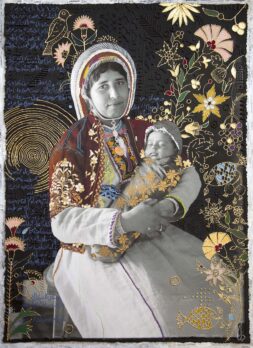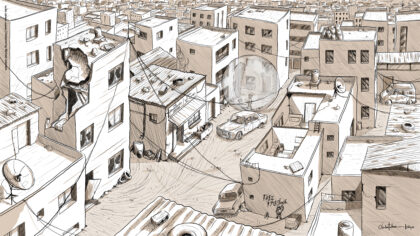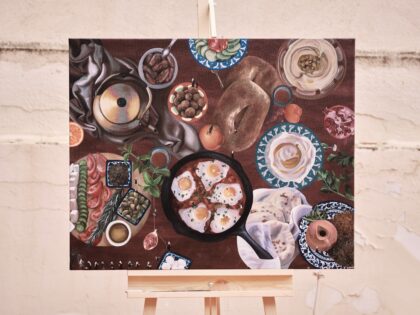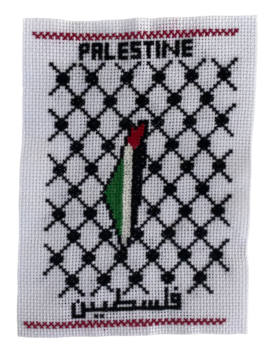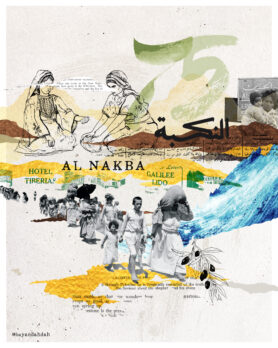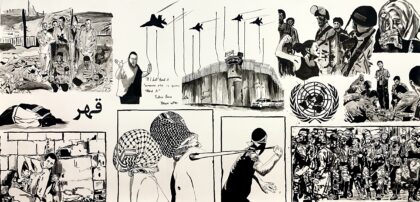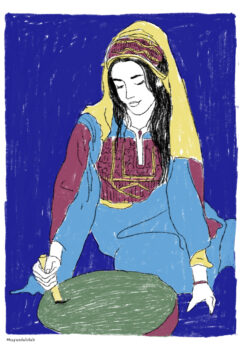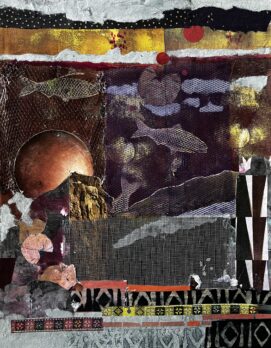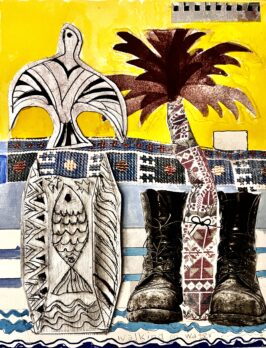It has been our privilege as the editorial team at Adi Magazine to curate this issue dedicated to Palestinian perspectives in affirmation of Palestinian life and in solidarity with the ongoing struggle for Palestinian freedom.
We are grateful to everyone who shared their work with us in response to our call for submissions. This issue gathers more than thirty writers and artists across genres, styles, and mediums all speaking to and through the historic and ongoing Palestinian experience of Zionist colonial aggression, occupation, apartheid, and ethnic cleansing. May it serve as one of many sanctuaries for remembrance and resistance.
Cento for Falasteen
from works by Hasheemah Afaneh, laila r. makled, Yousef Abu-Salah, Rashid Hussain (translated by Salma Harland), Bassam Jamil (translated by Nicole Mankinen), Rania Lardjane, Hani Albayarie, Summer Awad, Veera Sulaiman, Suzana Sallak, Nama’a Qudah, Michael Jabareen, Alia Yunis, Yara Ghabayen, Aiya Sakr, Edward Salem, Ahmad Mallah, Kat Abdallah, Liane Al Ghusain, Priscilla Wathington, Lisa Suhair Majaj, Farah Alhaddad, Mikhail de Parlaine, Bader Alzaharna, and Fady Joudah.
The air around me is clogged with dust, my lungs
feed on cement; my mouth, on rocks.
Black curls melt onto fracturing cheeks. People are
running out on the streets and they are
still bombing the buildings there.
They called us:
Human-animals
Collateral damage
Casualties
Uncivilized
Third world people
Terrorists
~
God said (and already you can tell
I’m making this up),
If you lift a rock, I am there.
At first, some screams echoed from within
the rubble, and then everything went
silent.
Mustafa said he couldn’t recognize his own
brother; the faces he had looked at
his whole life were wiped of all features.
We love our Lebanese mountains and Palestinian hills so deeply
that they mistook us for stones. We were so identified
with the olive and cedar trees, they thought us
inanimate. Unalive. A land
without a people. Never
allowed to return, I fumble
to find holes for the past to not be
a bleeding visitor who asks why the ambulance never arrives.
~
I write in English, feeling a rising tension between
myself and the language. The words feel strange, empty,
unable.
(Is this a disappearing game
or stretching membrane?)
I’m against my child
becoming a hero at ten
against the tree flowering
explosives
against the branches
becoming gallows
against the flowerbeds
becoming trenches
against it all
but
which fire will keep me from what is mine?
Sage in the fall, grape leaves in the spring,
and rooted year-round in our family trees –pomegranate, fig,
apricot, almond, orange. Before planting each
of those trees, Sedo would kiss the seed,
imbuing it with a piece of his soul.
Your names are the only language
that holds any meaning.
~
There’s no point in turning the page on the calendar. The ninety-year old as registered in the documents of the colonizer’s archive is still fifteen, and the one who is seventy-five years old in the colonizer’s documents was actually born today, yesterday, tomorrow. They were all born and are all being born here.
The almost dead wakes up, dies, dreams and breaks
smiling.
You learn to sing in a secret language
for the prisoner’s ear only -
We, those of us not from Gaza, never meet Gaza as she’s rebuilding herself.
We, those of us not from Gaza, have yet to meet Gaza not under siege.
~
I see how he holds a maimed toddler in his left arm while
driving an ambulance with his right, how he
sits on the sidewalk, head against the remaining
wall of a store, gazing blankly toward the fiery sky.
When the empires come for you you learn to hide it all.
Ash.
Spells.
Funeral bells.
Candles on our mantlepieces and in
our hearts: Please,
do not leave us. Stay with us.
Hell is reading their messages and not being
able to do a thing.
~
It’s not as easy as it used to be
to be alone with the earth.
Children don't play outside anymore.
They play in hospitals and shelters, dark circles
around their precious little eyes. God is
Palestinian, and we have all killed him,
snuffed him out, missile by missile.
But which fire
will keep me
from what is mine?
Hope was the last breath of the traveler,
hope was his land. That cramped room
in Ummi’s house in Gaza was my cathedral.
The symphony of creaking floorboards, downstairs
arguments, and wobbling window sills its choir.
I tell them Ramallah is the most beautiful,
and that beauty compels you to forget
their ugliness and that of your own. We keep
waiting for justice, the light of recognition
that makes the world whole: we see you and love
you as you are.
I am
spent yet full of readiness. The fire
drinks from my eyes. The roots of my land
absorb me
Adi Magazine’s Editorial Team
Cover art by Fadia Jawdat
In this Issue
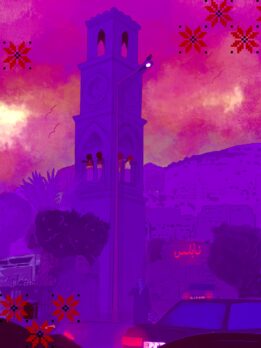
Gaza, I Wish We’d Meet Under Better Circumstances
I first met the Gaza Strip on a television screen back in 2004, at eleven years old.
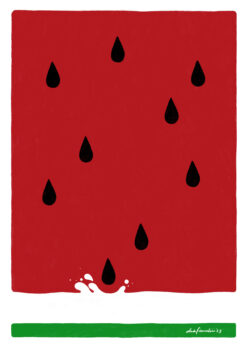
To Live Free
To colonizing propagandists, our story is the American Dream. To us, it’s an ongoing tragedy.
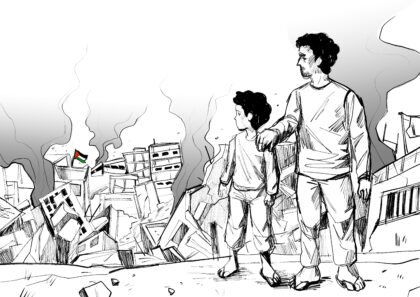
My Gifts from Gaza
Baba once mentioned how Palestinians were the patient dough of the Taboon. No matter how much we are kneaded, beaten, and stretched beyond our limits, our capacity for hope is supernatural. Taboon, even burnt beyond recognition, is still Taboon.
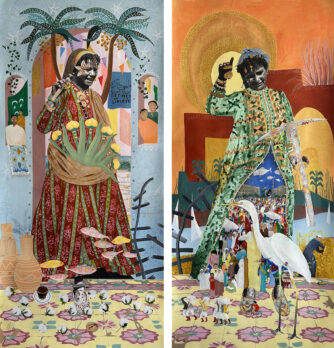
Three Poems
I’m against my country’s revolutionaries / Wounding an ear of wheat / Against the child / Any child / Holding a grenade
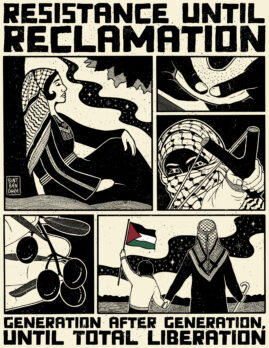
I am the stranger
I am the stranger / The shadow beneath the cloud / Adrift and looming over my land
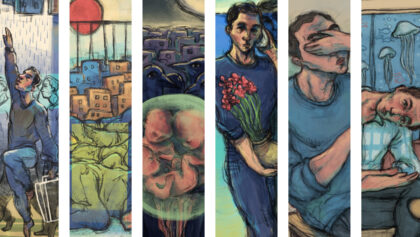
(out of borders)
He wears winter and searches for another land, / Where he will say to the raining clouds, / To sow the sea in a land other than the one we know. / Hope was the last breath of the traveler, / Hope was his land.
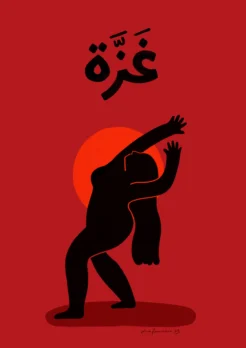
Why I Love Secrets and Lies
You learn to make your gods as small as a coffee cup and hide your future in it
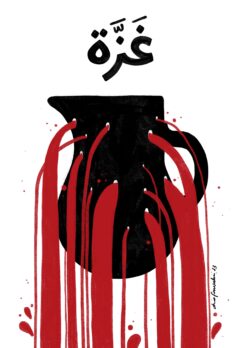
In October, the sky turned white
Why are these babies asking too much when they demand nothing but the most basic human rights?
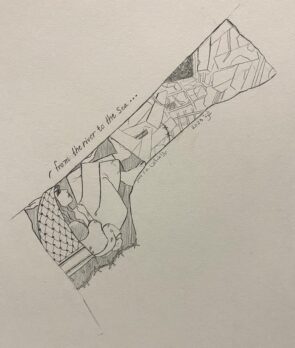
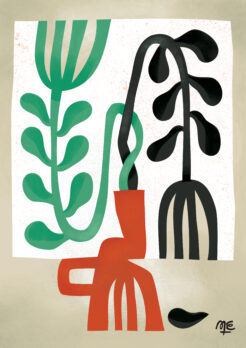
A Farm in Gaza
My grandma had a farm in Gaza where her children played outside. Only her two oldest sons remember living there.
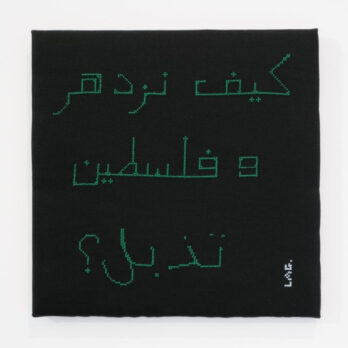
Letters to the Unliving and Unborn [for Palestine]
We are the land and the land is us. / Its holiness and grime cannot be dispelled from us.
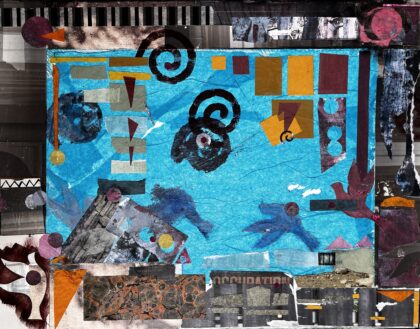
For the Dead Among Us
We will open the day for you, and the night. We know that you are beneath the earth, or ash
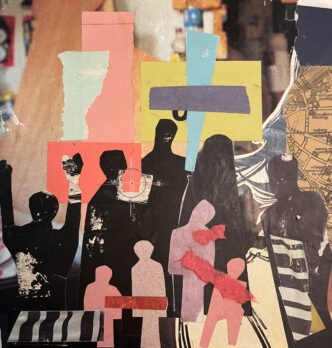
A Few Lines
At a hospital-turned-housing-shelter, a father wept, cradling his newborn son at the gate of Al Shifa hospital.
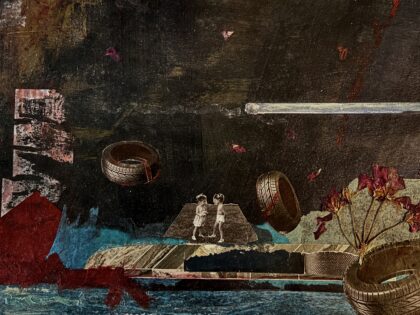
I Was Imagining
Planes claim the sky; claim mothers and fathers, / Claim dreams, futures, one last kid's hope
